MercoPress. South Atlantic News Agency
Stories for March 16th 2011
-
Wednesday, March 16th 2011 - 06:05 UTC
CFK team insists with a Peronist outsider as her vice-presidential candidate
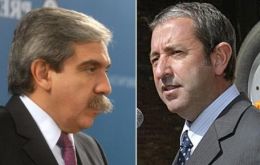
Following on Sunday’s electoral victory in the northern province of Catamarca, Argentina’s Cabinet Chief, Aníbal Fernández insisted that the Victory Front ruling party might go with a non-Peronist vice-presidential candidate on next October’s presidential elections.
-
Wednesday, March 16th 2011 - 05:58 UTC
Gaddafi ever more confident he can defeat Benghazi ‘dogs and traitors’

Libya’s Muammar Gaddafi appeared at a Tuesday evening rally in a huge tent in Tripoli, condemning the rebels as rats, dogs, hypocrites and traitors. As he spoke, thousands gathered in a Benghazi square denouncing him as a tyrant and throwing shoes and other objects at his image projected upside down on a wall.
-
Wednesday, March 16th 2011 - 05:38 UTC
Bahrain threatens to turn into a conflict between Sunni-rulers and Shi’ite majority
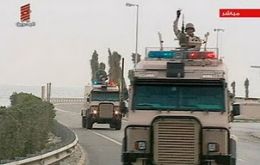
Bahrain's king declared martial law as his government struggled to quell an uprising by the island's Shi'ite Muslim majority that has drawn in troops from fellow Sunni-ruled neighbour Saudi Arabia.
-
Wednesday, March 16th 2011 - 05:10 UTC
February inflation in Argentina, 0.7%; private estimates double that percentage
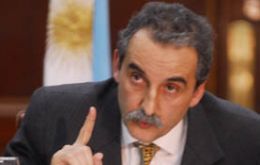
Inflation in Argentina advanced 0.7% in February over the previous month pushed mainly by increases in the clothing sector (2.2%) and leisure activities (3.5%), according to the official Indec National Statistics Bureau. During the first two months of the year, the consumer prices index accumulated 1.5%.
-
Wednesday, March 16th 2011 - 04:23 UTC
Reviving the US economy and trade relationship, main objectives of Obama’s visit
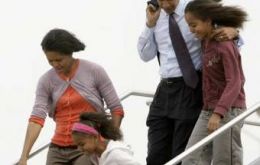
US President Barack Obama's trip to Brazil, Chile and El Salvador beginning this week is still on, despite fears of a nuclear disaster in Japan and turmoil in the Middle East, officials said on Wednesday.
-
Wednesday, March 16th 2011 - 04:19 UTC
Honduras forgets Argentina and Brazil; will open trade offices in India and China
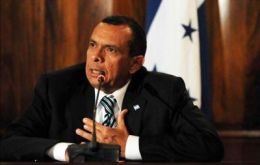
Honduras is planning to close embassies in Argentina, Brazil, Bolivia, Ecuador and Venezuela countries which do not recognize the government of President Porfirio Lobo.
-
Wednesday, March 16th 2011 - 03:59 UTC
Uruguay recognizes Palestinian sovereign state and will open embassy in Ramallah
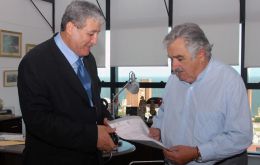
Uruguay announced on Tuesday it had recognized a Palestinian state, becoming the latest in a string of Latin American countries to make an endorsement in recent months the United States has called premature.
-
Wednesday, March 16th 2011 - 03:05 UTC
Japanese stocks rebound; central bank injects 326 billion USD in three days
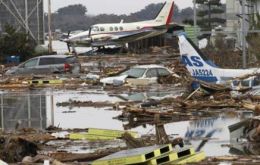
Japanese stocks rebounded Wednesday as concerns over the long-term impact of Friday's earthquake and tsunami on Japan's economy ease.
-
Wednesday, March 16th 2011 - 01:32 UTC
‘Frozen’ Japanese economy expected to rebound positively in third quarter

Friday's earthquake and tsunami have left parts of Japan's economy “frozen”, but analysts forecast that it will bounce back later this year. Some of the country's leading producers, including the world's biggest carmaker, Toyota, have closed all of their plants in the country.
-
Wednesday, March 16th 2011 - 01:23 UTC
State elections behind Merkel’s decision to halt 7 of Germany’s 17 nuclear reactors
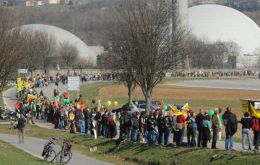
German Chancellor Angela Merkel is backtracking on nuclear power as the atomic emergency in Japan becomes an issue in state-election campaigns. Merkel’s decision to halt seven of Germany’s 17 reactors includes two in Baden-Wuerttemberg, where her party is battling to retain its 59-year-hold on the state in a March 27 vote.
